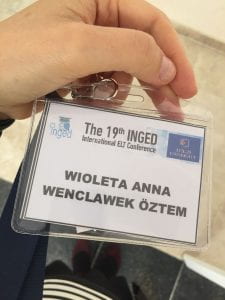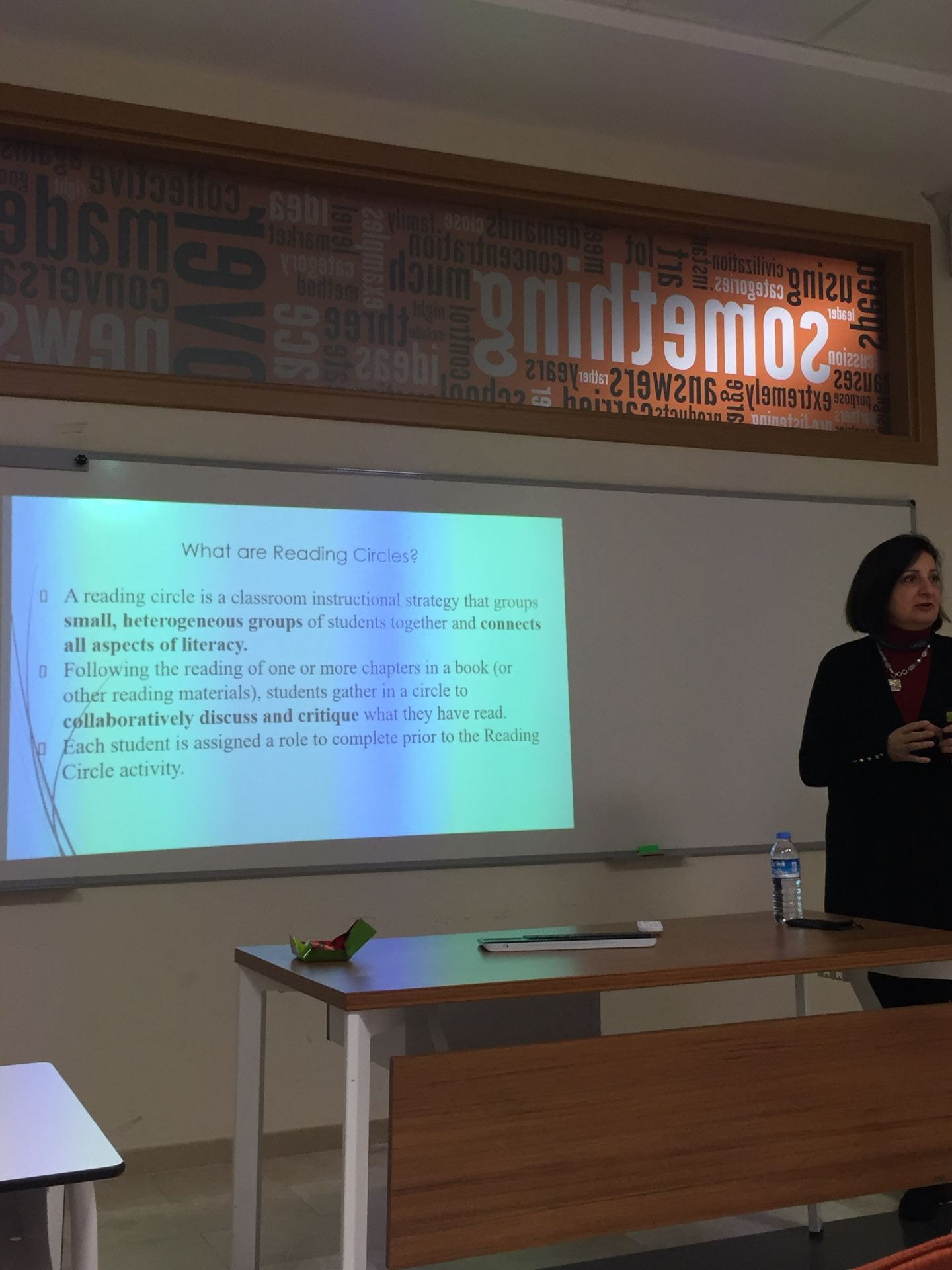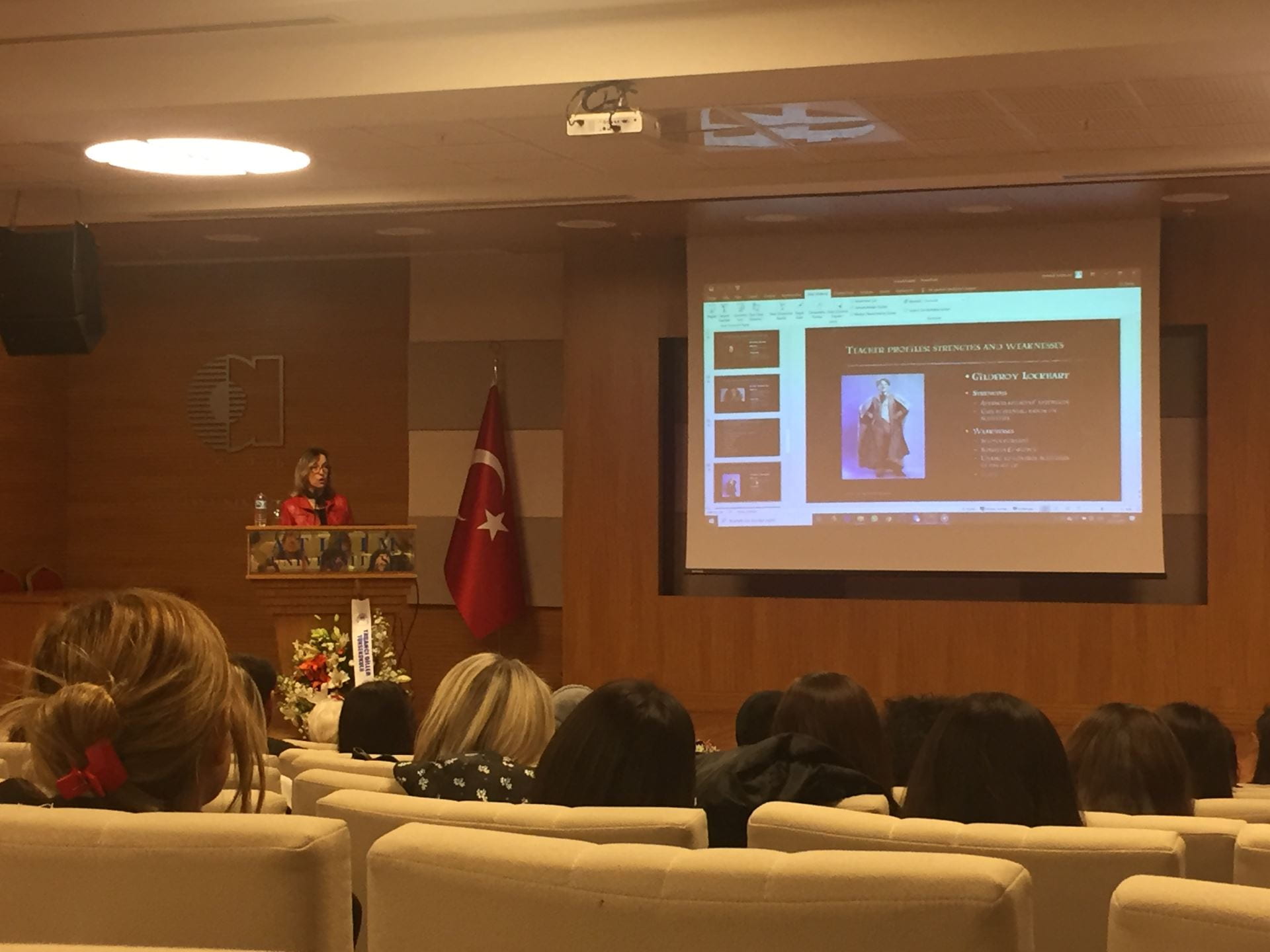Reflection on the 19th INGED International ELT Conference by Wioleta Anna Wenclawek Öztem

I had an opportunity to attend and give my own presentation at the 19th INGED International ELT Conference, which took place between 14-16 November. The conference was held by Atılım University in Ankara (School of Foreign Languages). INGED is an international association whose mission is to strengthen the effective teaching and learning of English as a Foreign Language in Turkey while developing international connections.
This conference gathered people from around the world and aimed at sharing experiences and knowledge of current trends in TEFL field and in ELT practices. The participants had multiple opportunities for professional development through an exchange of ideas and practices in ELT and research.
The conference program was packed with various workshops, short paper presentations as well as plenary sessions. The first day started with an opening ceremony and a plenary session led by Simon Phipps. His session, entitled ‘CPD as a way of life’, aimed at raising participants’ awareness of the importance of Continuing Professional Development in today’s world as well as professional learning as a part of this process. He went over theory and presented some practical ways in which we can seek opportunities to develop our professional expertise.

I also joined another session on professional development entitled ‘Thinking outside the box about professional development’ by David Fay and Aycan Yaman-Esen who work for The Regional English Language Office at the US Embassy. The workshop gave an overview of their efforts and exposed participants to several ready-to-use resources and formats for improving the quality of education at both pre- and in-service levels.
On the same day, I also gave my own presentation entitled ‘Personalization as a tool boosting university students’ motivation’. It was a workshop that aimed at presenting different ways of personalizing a lesson content considering its benefits and challenges. The aspects touched upon included relating to students’ lives and interests as well as preparing materials tailored to their needs and experiences. My session presented some practical activities that teachers could use in the classroom, including personalized games, questionnaires and giving students choices. The participants temporarily took on students’ roles and performed some activities in groups and pairs.
Another session I was interested in was the one prepared by two MEF University students, Sedanur Gök and Özge Akaner. They presented their research and experiences on flipped learning approach in English Preparatory Program. It was inspiring to see that their approach was very beneficial for the students in terms of achievement, students’ involvement and the exam results. The session was called ‘Using Flipped Learning Approach in English Preparatory Program: From the Perspectives of Students and Teachers’.
Finally, I joined a session entitled ‘Reading outside the box’ on reading circles in the ELT classroom by Yasemine Salah El-Din. I chose this session because I wanted to get some new ideas and learn about a new practice that could possibly be implemented in our institution. A reading circle is a classroom instructional strategy that gathers small groups of students to collaboratively learn, discuss and critique what they have read. The students take on some roles and lead the circle which gives them autonomy and sense of achievement. We finished the session with some brainstorming on how a reading circle can be used with different language abilities and proficiency levels.

On Friday, I had a chance to join multiple sessions taking place throughout the day. The ones I chose included ‘Monolingual versus Bilingual Grammar Teachers: Who is more effective?’ and the session on ‘Gamification’. I will not go into detail describing all of them but I wanted to share my positive feeling after attending one specific session. Ayşegül Amanda Yeşilbursa gave a wonderful and hilarious session entitled ‘Reflecting on Classroom Interaction Patterns with Hogwarts Teachers’. She used a series of videos from different Harry Potter films to help EFL teachers notice and deal with problematic areas of teaching such as giving instructions, providing feedback, and questioning skills. Obviously, the audience was amused and very happy to watch the videos but most importantly, it helped us focus on linguistic and non-linguistic aspects of classroom interaction and ultimately reflect on our own philosophies of teaching. I wish more sessions like this one were given during conferences and teacher training events.

Overall, this entire experience was very fruitful and enjoyable. I’m glad I had a chance to be a part of this international gathering full of passionate English teachers. I didn’t expect this conference to be so practical and enlightening. INGED definitely focused on sharing experiences, practices and teaching tips rather than presenting theory. I would recommend this conference to anyone who wishes to develop professionally and I would gladly join it one more time in the future.

Leave a Reply